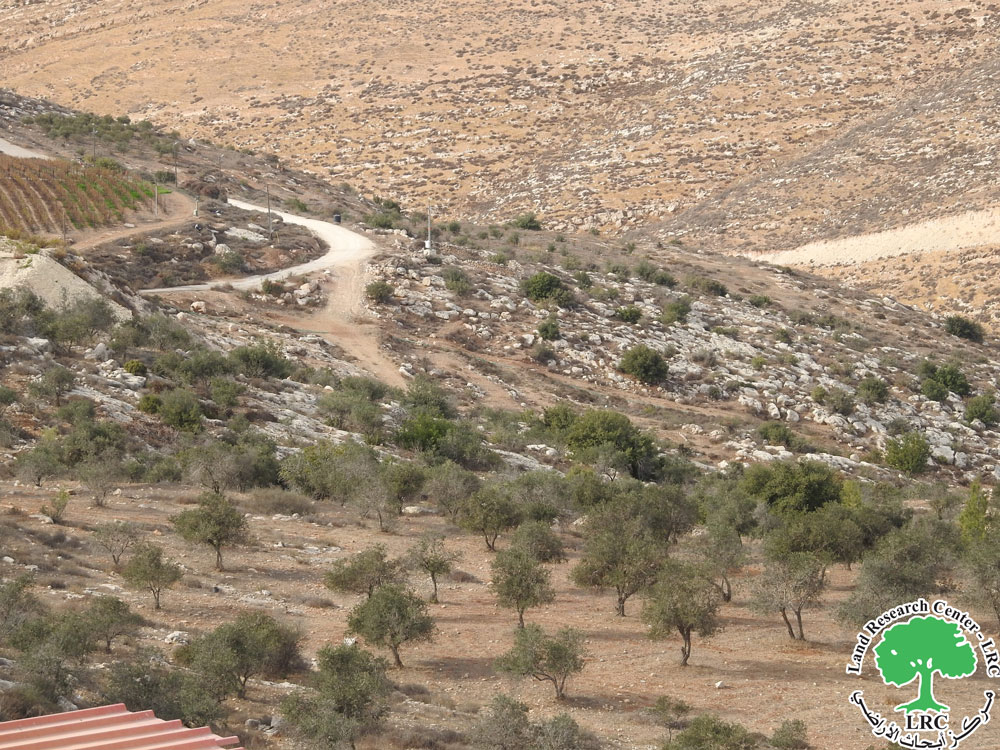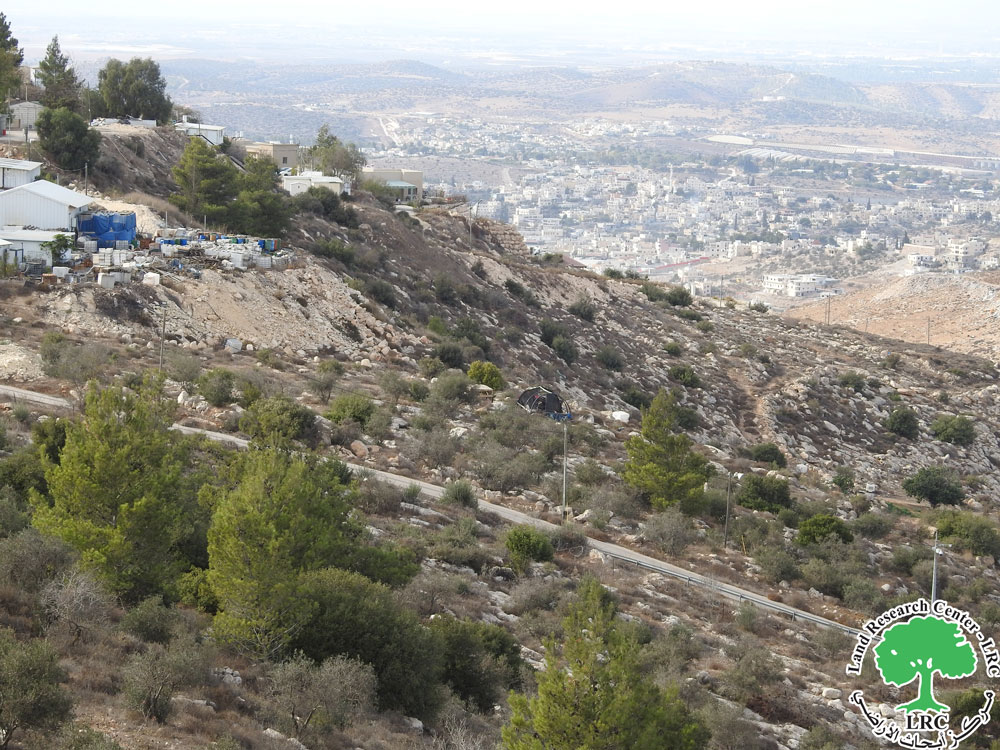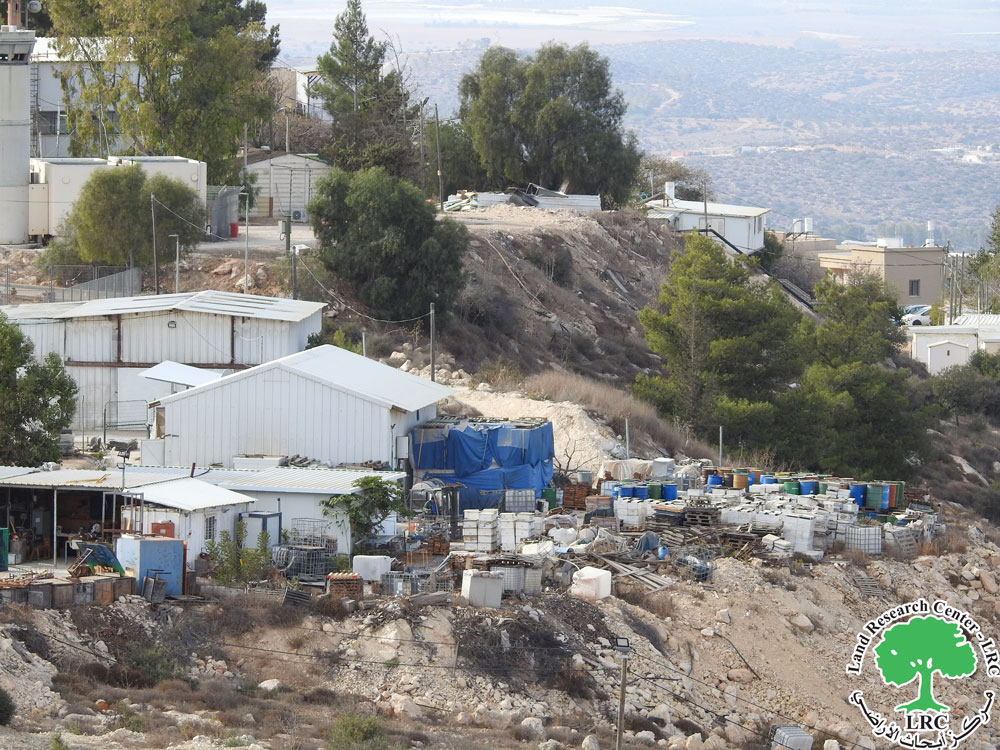2024-11-24
Settlers Assault Farmers and Prevent Them from Harvesting Their Olives in the "Umm Hathoua" Area/ West of Hebron
- Violation: Assault on farmers.
- Date of Violation: November 2024.
- Location: Umm Hathoua – Dura town, Hebron Governorate.
- Perpetrators: Settlers.
- Affected Party: Odeh family – Mohammad's children.
Description:
Settlers continue their attacks on farmers and agricultural lands in the "Umm Hathoua" area near Khirbet Salama, west of the town of Dura in southern Hebron Governorate. These assaults have intensified during the current 2024 olive harvest season.
The Umm Hathoua area is located near the "Negohot" settlement, established in the early 1980s after being a military camp. Recently, the occupation authorities granted it "legal status" by approving a detailed plan covering about 850 dunams of land from Umm Hathoua and the neighboring village of Faqiqis.
Umm Hathoua is known for cultivating a large portion of its land with ancient, productive olive trees. The Odeh family (Mohammad's descendants) owns approximately 150 dunams of private land in the area, around 100 dunams of which are planted with olive trees aged between (5 - 35) years.
A View of the "Negohot" Settlement Overlooking Citizens' Olive-Planted Lands
Mr. Ezzat Mohammed Odeh, one of the farmers owning land in the area, is among those most frequently targeted by settlers and occupation soldiers as they attempt to access their lands. These assaults have intensified, particularly after October 7, 2023, following the outbreak of the war on Gaza.
Ezzat Odeh owns approximately 40 dunams of land planted with olive trees. During the 2023 harvest season, which coincided with the start of the war, he managed to pick some olives before the occupation authorities imposed a ban on farmers accessing lands near settlements and bypass roads across most of the occupied West Bank.
In the current 2024 season, the occupation authorities imposed significant restrictions on farmers' access to their lands in Umm Hadoua and similar areas. They announced specific days during which farmers would be permitted to enter their lands and harvest olives. Accordingly, the permitted days for Umm Hadoua farmers were set for November 3rd and 4th, from 9:00 AM to 2:00 PM, totaling only 10 hours for the entire season.
Yousef Ezzat Odeh, 46, the son of farmer Ezzat Odeh, recounted the assaults his father, siblings, and relatives endured from occupation forces and settlers, particularly during the olive harvest.
Yousef explained that under normal circumstances, his relatives would need approximately 10 days of work, equating to around 80–90 hours, to harvest olives from their lands in Umm Hathoua. This contrasts starkly with the meager 10 hours allocated by the occupation authorities this season.
He said:
"The farmers went to their lands in large numbers, bringing along their children, siblings, grandchildren, and friends to make the most of the short time given to them for harvesting as much of their olives as possible. On the first allowed day, November 3, 2024, my relatives were able to work almost the entire day without major issues from the settlers.
However, on the second day, around 50 landowners and their helpers went to the area but were attacked by settlers and occupation soldiers about an hour into their work. The soldiers forced them out of their lands before the allowed time ended - Coordinating"
Yousef Odeh explained that some farmers with smaller plots of land were able to complete their olive harvest on the first day due to the large number of helping hands. However, his father and some of his uncles, who own larger areas, could not finish harvesting.
Some of them attempted to return to their lands later, hoping to harvest more olives. They managed to work for about half an hour before occupation soldiers arrived. The soldiers destroyed the harvested olives and scattered them across the fields. Those affected included (Yasser Ahmad Odeh, Bajes Ahmad Odeh, and Faisal Mohammed Odeh). The soldiers then expelled them from their lands.
As a result, the farmers stopped trying to access their lands or harvest olives, fearing further assaults by the occupation forces.
Yousef mentioned that his father and brothers returned to their lands on November 14, 2024, hoping to harvest more olives. However, after about an hour of work, they were attacked by the so-called settlement security guards, who expelled them from the area. The guards also confiscated an electric olive-harvesting machine provided by the Ministry of Agriculture to help with the harvest and reduce the required time. Additionally, they seized the car battery they were using to charge the machine's batteries, as well as an electric saw for pruning the olive trees.
After these assaults, Yousef Odeh pointed out that a significant amount of olives remained on the trees, and his family was unable to harvest them. As a result, his family was deprived of the yield. It is expected that settlers will steal the remaining olives, as they have stolen previous harvests from the trees. This will harm around 40 people from Ezzat Odeh's family, including his children and grandchildren.
مشروع: حماية الحقوق البيئية الفلسطينية في مناطق "ج" SPERAC V - FCDO
Disclaimer: The views and opinions expressed in this report are those of Land Research Center and do not necessarily reflect the views or positions of the project donor; the Norwegian Refugee Council.
إخلاء المسؤولية: الآراء ووجهات النظر الواردة في هذا التقرير هي آراء ووجهات نظر مركز أبحاث الأراضي ولا تعكس بالضرورة وجهات نظر أو مواقف الجهة المانحة للمشروع؛ المجلس النرويجي. للاجئين



